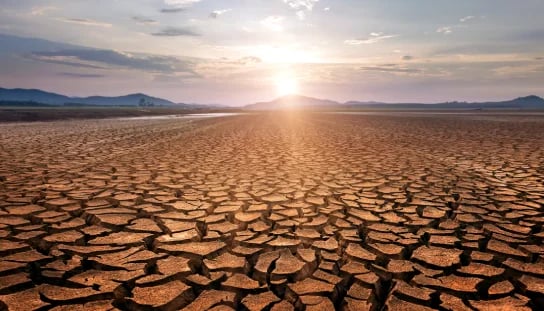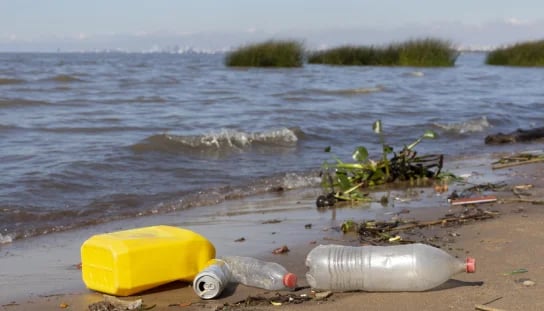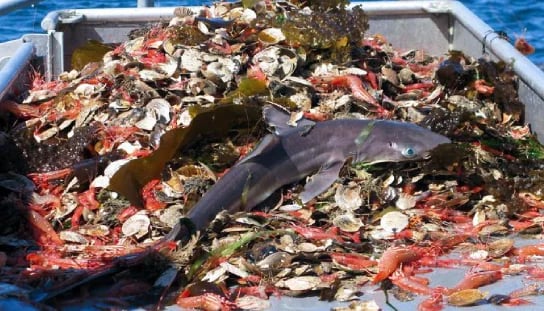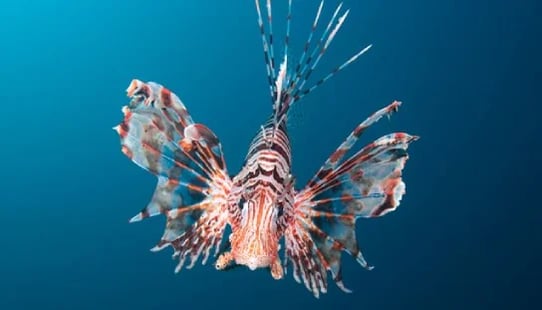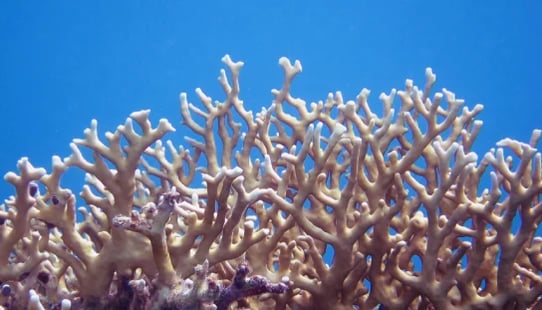- ENVIRONMENTAL EDUCATION PLAN -
AVANTE
Moving forward, refers to the interest of our company to innovate within our activities to improve the experience of our customers and, in parallel, to continue the commitment to efficient sustainable development actions that benefit the natural environment and the community of Quintana Roo
ENVIRONMENTAL EDUCATION PROGRAM FOR COLLABORATORS
At Cancun Sailing we know the natural environment very well since we live daily with two of its most important elements: water and wind. That is why we have the incredible opportunity to share the value of nature and its resources with our visitors from all over the world and in turn, raise awareness regarding the care for it.
.webp?width=854&height=569&name=04%20-%20HIRES%20-%20Isla%20Contoy%20-%20Open%20sea-1%20(1).webp)
OUR ENVIRONMENTAL LEADERS PROMOTE SUSTAINABILITY ACTIONS AND ENCOURAGE PEOPLE TO CREATE AWARENESS AND TAKE ACTIONS FOR THE PRESERVATION OF NATURE
The implementation of this program represents the first strategy to preserve the welfare of the environmental and social community of the region where we operate
OUR COMMITMENT
Given the adversities of today that affect the ecosystems and natural resources of the planet and the effect they have on the ecosystems of Mexico and the state of Quintana Roo, at CANCUN SAILING we recognize our responsibility and our commitment to carry out the best actions and practices that prevent and mitigate the impact of our activities on nature and promote the well-being of the community.
Because of the high value that Cancun Sailing attributes to the marine ecosystem and being aware of the problem that affects it, we have decided to join a group of national and international companies that promote the protection of nature and the sustainable management of resources.
"We implemented an Environmental Education Plan in which, through knowledge of marine ecosystems, visitors and collaborators of Cancun Sailing are sensitized to generate actions to preserve the natural environment."

AS A LEADING COMPANY IN SUSTAINABILITY...
we carry out nature conservation activities with our collaborators and clients as the main agents of change and adopting four main strategies:
1) Compliance with legal, environmental and internal company regulations in carrying out daily operations.
2) The adequate management of resources and the periodic evaluation (monthly/annual) of these, through the registration of environmental indicators (electricity, water, fuels, waste, among others) of the company.
3) The implementation of an environmental education plan, aimed at both employees and visitors for their awareness and the promotion of habits and actions to preserve the environment.
4) The generation of alliances with government institutions, civil society organizations and other companies that agree with our sustainable development objectives.
It is important to mention that Sustainable Development is not a strategy for immediate results; rather, it is a complex process of continuous improvement that will only be achieved with the evaluation of the objectives and indicators that are stipulated from its beginning and during its application.
At Cancun Sailing we are proud to add this proposal to our Corporate Social Responsibility scheme and to share our love for the sea and sailing with the visiting public and the community.
ENVIRONMENTAL ADVERSITIES
As previously mentioned, coastal and marine ecosystems are highly vulnerable to the direct or indirect impact caused by human activities today. The northern zone of the state of Quintana Roo is one of the regions where environmental quality is greatly affected by tourist activities and other uses of natural resources, as well as the high demographic and urban growth that the entity has experienced as a consequence of it. economic sector (Cruz and Pozo, 2011).
Climate Change
It consists of a series of physical and chemical transformations in the planet's atmosphere. Although it is a natural phenomenon that has occurred in different periods of geological time, the climatic alterations that we live in today coincide with the impact that human beings generate when carrying out activities such as the use of hydrocarbons, coal and gas for industry and transportation ; deforestation and the emission of chemical pollutants into the atmosphere.
Ocean Acidification
The oceans have the ability to regulate the planet's temperature by acting as sinks for carbon dioxide (CO2) and absorb about 30% of the CO2 that is emitted into the atmosphere (AIDA, 2014). The “capture” of carbon generates another chemical process in which CO2 is converted into carbonic acid, causing seawater to be more acidic and, consequently, the environmental conditions of marine ecosystems also change.
Pollutions
Pollution of coastal and marine areas is mainly caused by human activities carried out on land, such as agriculture, livestock, fish production, urban development, tourism, and industrialization; and by pollutants that reach the sea by direct disposal through drains, boat discharges, and river currents.
Extraction of Especies
It is the extraction of organisms from the ecosystem of which they are a part. It can occur from individuals to entire populations, even becoming an illegal activity if the species are protected under an environmental legal framework. This type of impact has direct repercussions on biodiversity and ecosystem dynamics and, indirectly, on food security and other livelihoods of human beings.
Invasion of Exotic Species
They are those organisms transported by natural means or by human activities, which come to establish themselves outside their natural distribution area, where they can cause serious ecological alterations, damage to public health and economic losses (CONABIO, 2010). Aquatic environments in particular have proven to be extremely sensitive. Approximately 40% of the extinctions of species that inhabit these environments have been related to predation, parasitism, or competition from invasive species. (CONABIO, 2010).
Coral Bleaching
This phenomenon occurs when the symbiont algae die or abandon the polyps due to a sudden increase in temperature, solar radiation and the high concentration of sediments and pollutants. This causes a reduction in the absorption of nutrients, which is manifested as a depigmentation and weakening of the coral, being one of the main causes of death of reefs in the world. The loss of reefs brings with it the loss of the environmental services they provide, which means a decrease in oxygen generation, coastal protection, species refuge, etc.
Voluntering & Certifications
We are proud to have the following certifications and volunteering
















RIGHT FROM THE BLOG
Get the best travel tips to visit Isla Mujeres and live a legendary experience
5 min read
The "Día de muertos" activities in Cancun, Mexico
Nov 1, 2025 by Diana Gonzalez
3 min read
Sustainable Mobility in Cancun - Complete guide
Aug 7, 2025 by Diana Gonzalez



